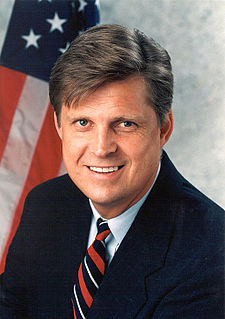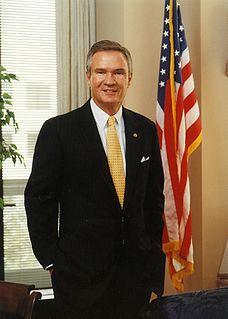A Quote by Dennis Hastert
One way we gave small businesses more money to invest was by extending tax provisions on expensing. This allows businesses to immediately write off things like equipment, without being burdened by depreciation requirements.
Related Quotes
When I talk about the ability for fintech to promote kind of economic growth and productive citizens coming in, using different data and being able to lend to small businesses, see those small businesses start to grow - of course, that means more money for their families, you know, the small-business owner families. They start to hire people.
If you bring [tax] rates down, it makes it easier for small business to keep more of their capital and hire people. And for me, this is about jobs. I want to get America's economy going again. Fifty-four percent of America's workers work in businesses that are taxed as individuals. So when you bring those rates down, those small businesses are able to keep more money and hire more people.
In general, the more entrepreneurs we have, the better off we will be because the economy is driven by small businesses and creative ideas... I'm really excited about what the future holds for women entrepreneurship and to be a small part of that by helping Kim Kardashian and Jessica Alba start their businesses.
Tax reform for the 21st century means rewarding hardworking families by closing unfair loopholes, lowering tax rates across the board, and simplifying the tax code dramatically. It demands reducing the tax burden on American businesses of all sizes so they can keep more of their income to invest in our communities.
My tax plan will cut taxes for 95 percent of workers, because we need to put money back into the pockets of struggling middle-class families and close the egregious tax loopholes that have exploded over the last eight years. My plan eliminates capital gains taxes entirely for the small businesses and start-ups that are the backbone of our economy, as opposed to John McCain's plan, which would tax these businesses. John McCain is running to serve out a third Bush term. But the truth is, when it comes to taxes, that's not being fair to George Bush.
When the government takes more money out of the pockets of middle class Americans, entrepreneurs, and businesses, it lessens the available cash flow for people to spend on goods and services, less money to start businesses, and less money for businesses to expand - i.e. creating new jobs and hiring people.
































